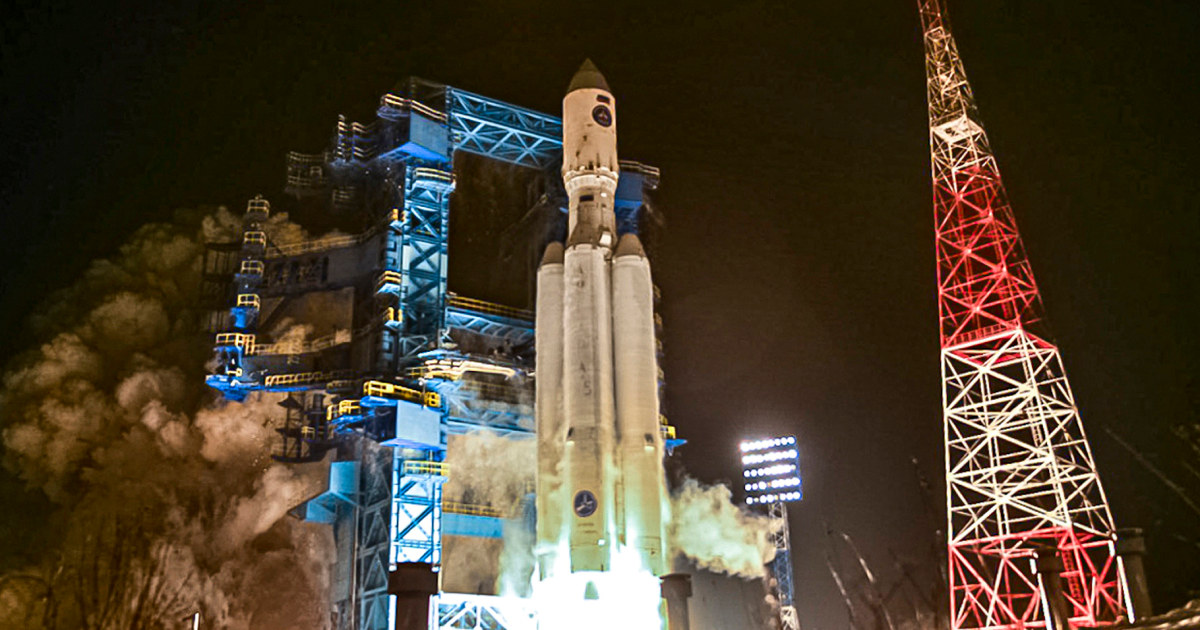A piece of Russian rocket will enter the Earth's atmosphere in an uncontrolled way in the next 24 hours and may fall somewhere on the planet's surface, although the risk of causing considerable damage or even casualties is minimal.
The Angara-A5 rocket lifted off from the Plesetsk spaceport in Russia's northwestern Arkhangelsk region on December 27.
Its
launch was intended to test the new Persei propellant (33 feet and 4 tons)
, according to CNN, citing data from the Russian state news agency TAS.
"It will fall in the next 24 hours, that's for sure, but no one can say where, because in the span of several hours it will circle the globe several times," Holger Krag, head of the Space Debris Office of the European Space Agency told CNN.
Launch of the Angara-A5 from the launch pad of the State Test Cosmodrome of the Ministry of Defense of the Russian Federation.
Most space debris burns when it re-enters Earth's atmosphere, but large pieces may cause damage if they land in inhabited regions.
Krag added that while this piece is highly unlikely to harm or harm anyone, "
the risk is real
and cannot be ignored."
He also indicated that between 100 and 200 tons of space debris re-enter the atmosphere in an uncontrolled way each year.
Only one case is known of a Texas woman who was hit by space debris in 1997, and survived.
This Russian piece is smaller than the Chinese Long March rocket, which was one of the largest objects in recent times to collide with Earth after falling out of orbit in 2018.
[Russian filmmakers who shot the first film in space return to Earth]
The "total mass is about the same as that of the Chinese piece, but most of it is probably liquid and will burn up in the atmosphere, so
the risk is significantly lower
," said Jonathan McDowell, an astronomer at the Harvard & Center for Astrophysics. Smithsonian.
The Russian space agency Roscosmos told the aforementioned outlet that the launch was operated by the Russian Defense Ministry, but it did not immediately respond to requests for comment.



/cloudfront-eu-central-1.images.arcpublishing.com/prisa/ZLW56GYGEBEJLPNDSNPUK2NJZE.jpg)





